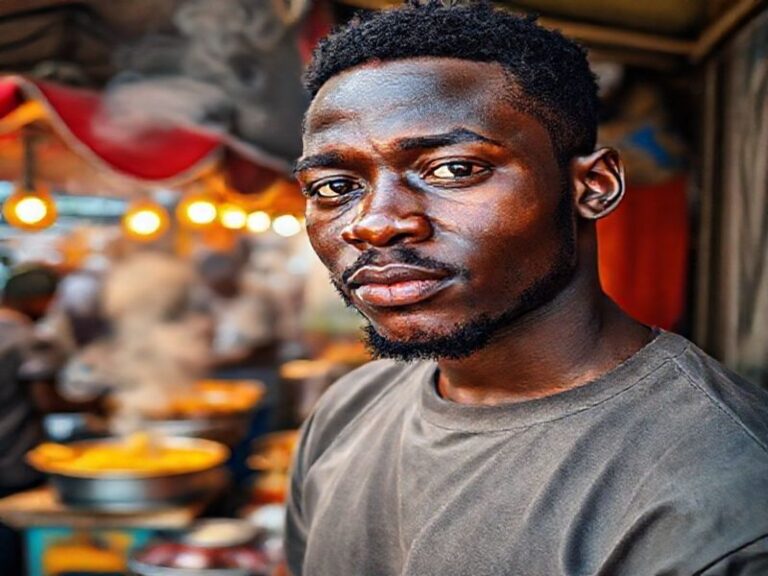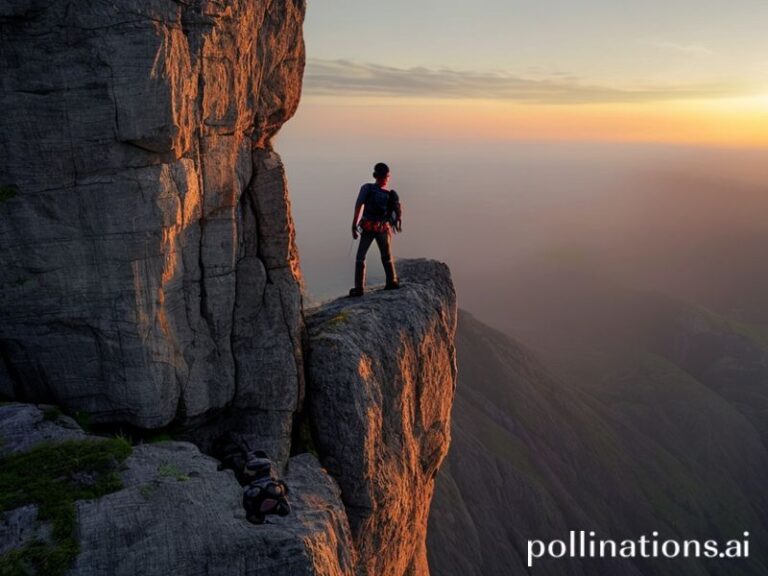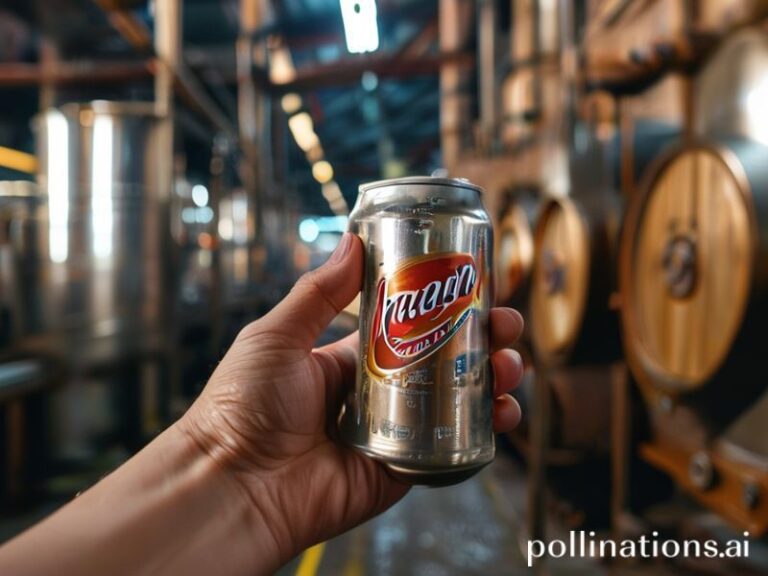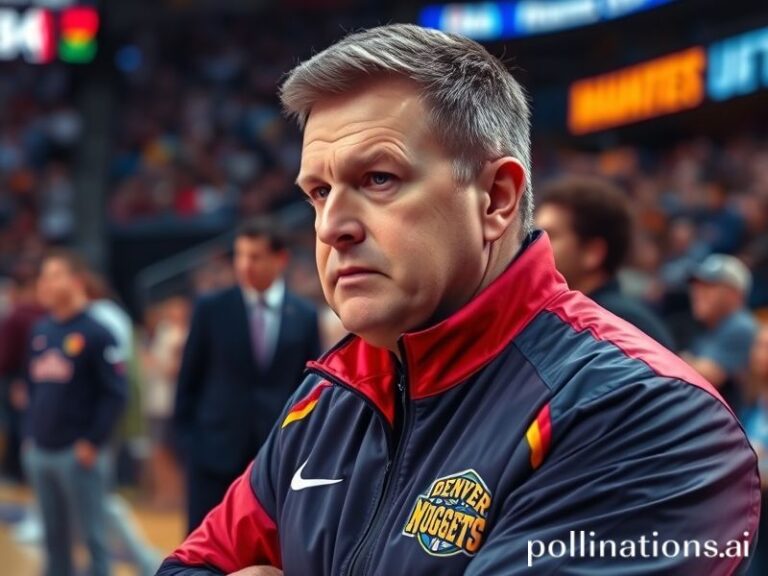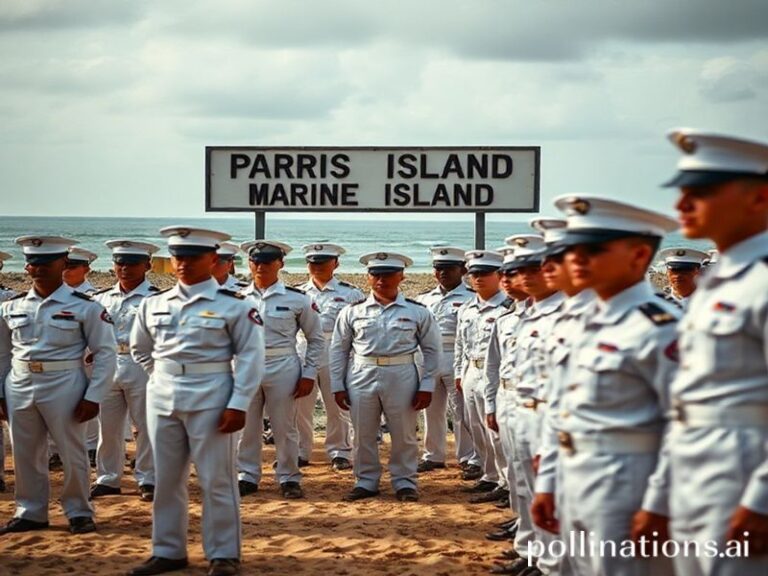Helen Skelton: Britain’s Cheekbone Diplomat Kayaks Through Global Chaos
Helen Skelton: The Last True Brit Standing (and Dancing) While the World Burns
From a safe distance—say, a bar in Lisbon where the Wi-Fi is stronger than the espresso—one can watch the curious spectacle of Britain exporting its most durable cultural product: the relentlessly upbeat television presenter who refuses to be cancelled by reality. Enter Helen Skelton, a woman whose passport claims she’s from Cumbria but whose actual nationality appears to be “BBC Resilience.” While the pound sterling flirts with peso-level parity and the island’s political class plays musical deckchairs on the Titanic, Skelton has become a living rebuttal to national decline: a one-woman IMF bailout package wrapped in Lycra and delivered via prime-time.
Globally, she’s what marketing departments would call a “soft-power asset,” though the phrase feels faintly insulting for someone who once kayaked the entire Amazon without losing either her composure or her sponsorship deal. In Latin America they remember her as the blonde who paddled through their rainforest promising “adventure” while politely ignoring the narco-subs gliding past. In Europe she’s the friendly reminder that Brexit didn’t actually sink the entire archipelago—just the parts that vote. And in the United States, where good teeth and better cheekbones are considered diplomatic credentials, she’s the rare Brit who can smile without looking constipated.
The international significance? Think of her as the anti-Baudrillard. While French theorists spent the nineties insisting the Gulf War never happened because CNN said so, Skelton keeps insisting that physical effort still counts for something. She cycled to the South Pole—yes, the actual one—raising money for Sport Relief in temperatures cold enough to make a Moscow landlord sympathetic. Somewhere in Davos, a junior analyst is still trying to quantify the GDP bump from all that frozen goodwill. Spoiler: it’s slightly less than Elon Musk’s daily mood swings.
Of course, the cynics among us (hello, welcome to Dave’s Locker) note that her brand of stoic cheerfulness is perfectly calibrated for an era when “resilience” has replaced “revolution” as the aspirational buzzword. From Kyiv to Karachi, governments now prefer citizens who can dance through blackouts rather than burn down palaces. Skelton, twirling across Strictly’s glitterball dystopia while her marriage implodes in the tabloids, is the poster child for smiling through structural collapse. It’s a skill set with export value; expect franchised versions in Seoul and São Paulo by Q3.
Yet there’s something almost geopolitically useful in her refusal to break character. In a media landscape where every celebrity meltdown is live-tweeted by bots, Skelton’s composure feels like vintage British understatement—tea at the Blitz, but sponsored by Garmin. The world may be running out of microchips and wheat, but we’re apparently not running out of Skeltons. That matters when you’re trying to convince international investors that the UK still produces something other than hedge-fund psychodramas.
Meanwhile, the darker joke is that her actual job—reporting from disaster zones for BBC Children in Need—has become indistinguishable from the nightly news. Flood in Pakistan? Send Skelton. Hurricane in Honduras? Skelton’s already there, waterproof mascara intact. She’s essentially global calamity’s red-carpet host, gamely asking refugees about their hopes and dreams while the planet files for Chapter 11. If that sounds bleak, remember the alternative: a world where no one even pretends to care.
So raise a glass (Portuguese red, affordable thanks to post-Brexit tariffs) to the woman who turned “Keep Calm and Carry On” into an extreme sport. In an age of performative despair, Helen Skelton offers the radical act of not giving up on camera. It isn’t revolution, but it might just be the last export Britain can still deliver on time—assuming the container ship isn’t stuck in Suez.


